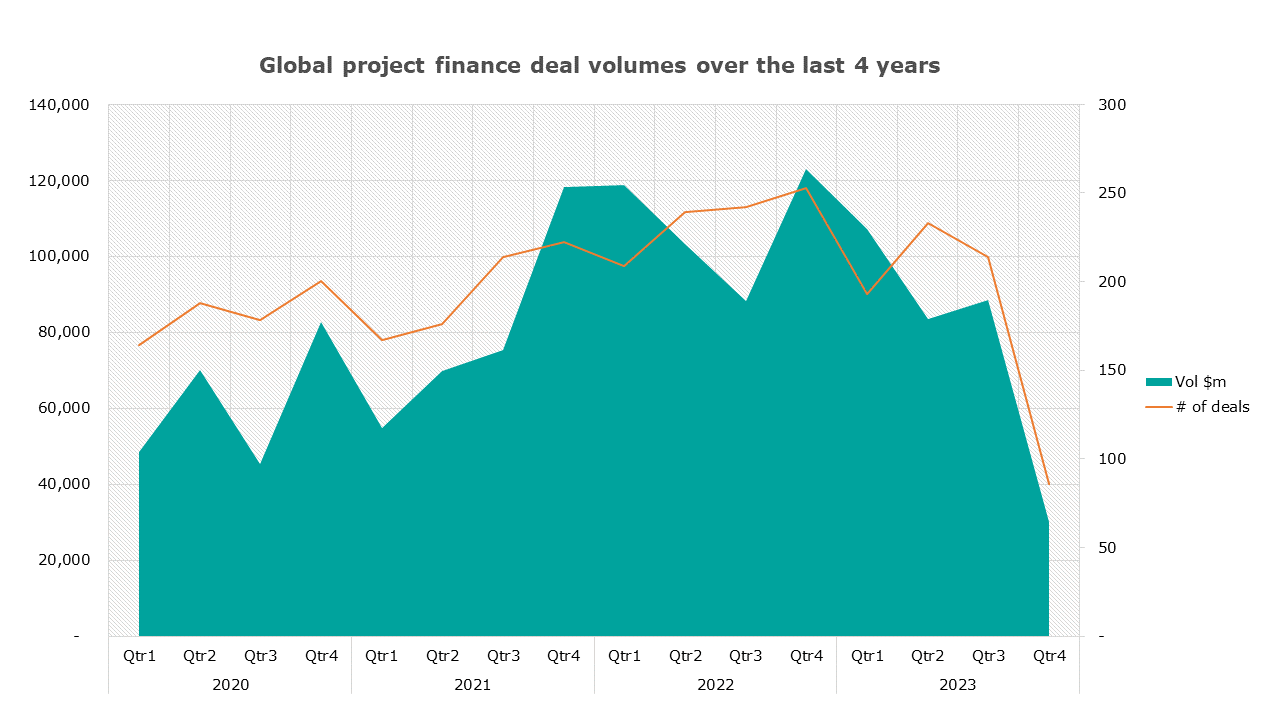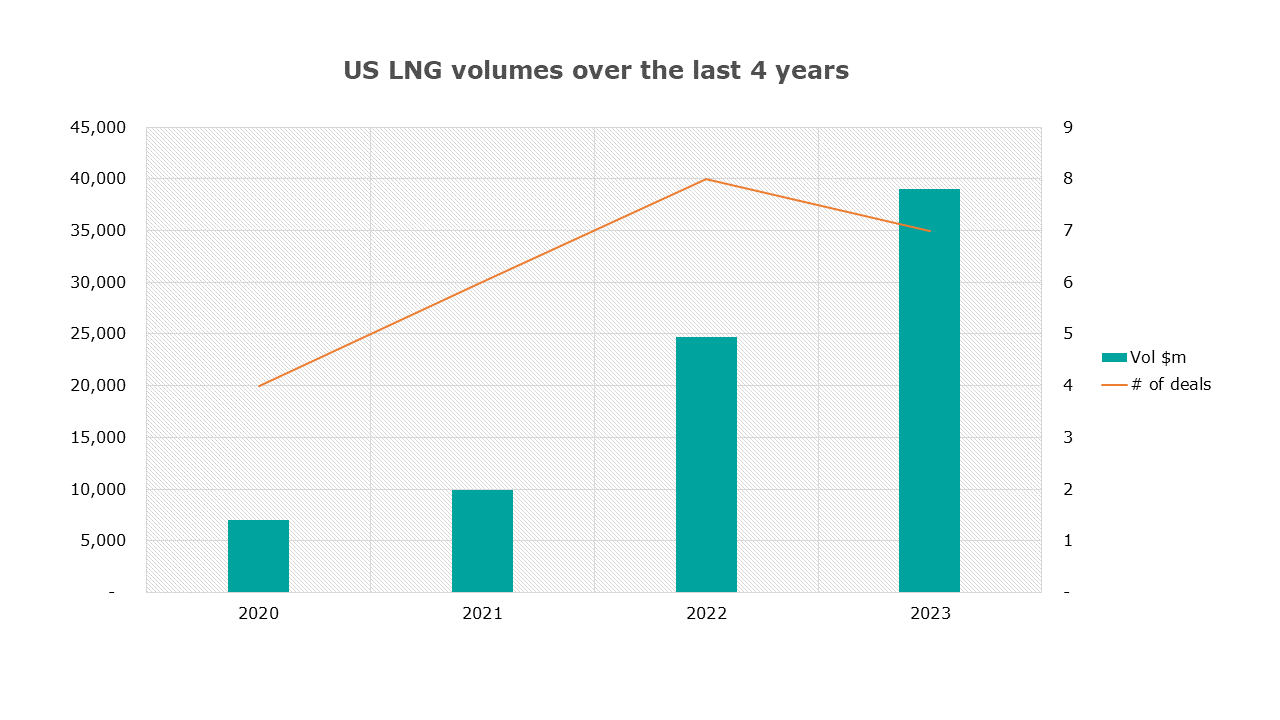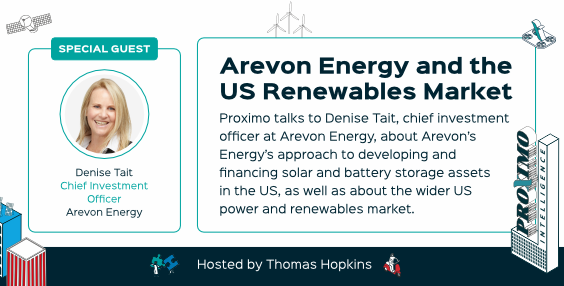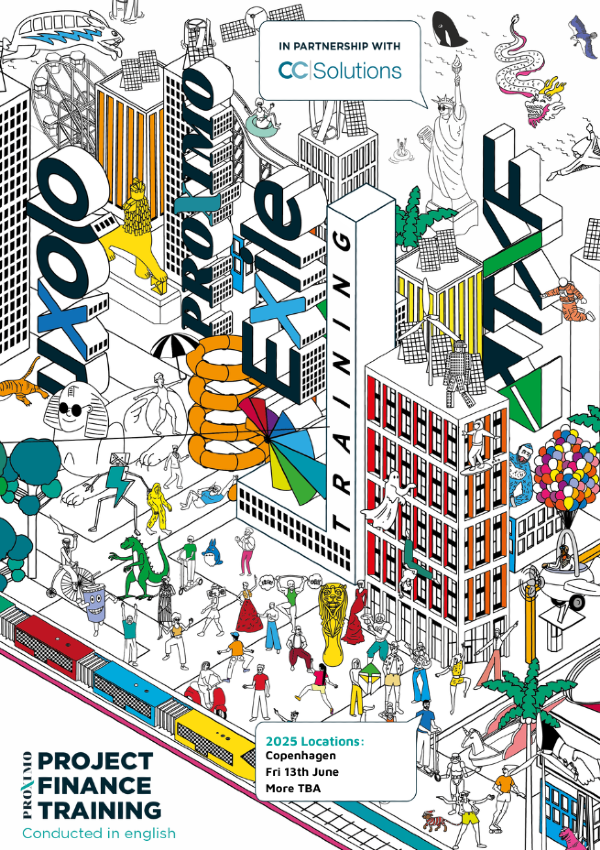Proximo's project finance trends of 2023
Proximo takes a look at some of the top project finance trends for 2023, such as the growth of European data centres, the emergence of green hydrogen as an asset class, and the use of tax credit transfer deals in US renewables financings.

Global project finance volumes remain high despite elevated interest rates and some economic uncertainty, with demand for bank debt outpacing liquidity in some strong markets like the US. Nevertheless, persistent inflation will have eroded the year-on-year growth of the global project finance market in real terms.

The surge in European FTTH deals is gradually tapering off and countries such as Germany have generally seen smaller deals in 2023 than in 2022, although European data centre financings are beginning to take off with deals like the €1 billion maincubes financing reaching financial close. The US has begun to see an uptick in non-recourse financings for FTTH projects alongside expanding deal flow for data centres.
While project finance deal flow for green hydrogen projects has been limited beyond the landmark NEOM project in Saudi Arabia, the US and Europe are implementing subsidy regimes for green hydrogen projects that may help such projects’ bankability. These subsidies include tax credits made available by the Inflation Reduction Act and funding from EU initiatives such as the Innovation Fund and European Hydrogen Bank.
The global renewable energy sector has encountered higher debt and materials costs resulting from inflation and interest rate hikes. Offshore wind has been particularly affected, with development slowing in markets such as the US and the UK. Despite these challenges, projects such as Northland Power’s Baltic Power and Hai Long wind farms have still reached financial close.
Tax credit transfer deals are becoming increasingly popular in the US as an alternative to traditional tax equity partnerships and have been used for projects like the Tierra Bonita solar project. While partnerships often deliver higher returns for sponsors, transfers are typically simpler to negotiate and can be used for projects that may otherwise struggle to monetise tax credits.
The US LNG sector has enjoyed robust growth, buoyed by demand resulting from a global gas shortage caused by the fallout of Russia’s invasion of Ukraine. Financings for projects such as Port Arthur LNG and Rio Grande LNG have reached financial close and further transactions are expected in the next year.

Both Uzbekistan and Kazakhstan continue to demonstrate burgeoning renewable energy deal pipelines, attracting international developers like ACWA Power and Masdar. The project financings that have closed so far have mostly been DFI-backed, but there is potential for commercial bank involvement, as was seen with the Zarafshan onshore wind deal in 2022.
Many GCC countries are rapidly expanding their use of public-private partnerships (PPPs) for social infrastructure projects. Saudi Arabia is by far the largest market in the region, having recently passed and updated its Private Sector Participation (PSP) Law, which is intended to provide a legal framework for PPPs that conform to international standards.
Commercial bank financings for renewable energy projects in sub-Saharan Africa are still limited outside South Africa and many transactions have DFI backing. South Africa’s established banking sector has enabled the financing of renewables projects procured either through the government’s REIPPP programme or through private tenders run by C&I offtakers.
Watch the Proximo highlights of 2023 video!
Also check Proximocast: 20 minutes with... Festive Trends 2023 special! Proximo talks to a panel of industry experts about the top project finance trends from 2023 and what those trends might mean for the market in 2024. Speakers include Ian Cogswell, a senior adviser at Portland Advisers; Jonathan Yellen, an investment director at Climate Investments; and Michael Whalen, a managing director at Berkeley Research Group.
Listen to the podcast on our website here or search for 'Proximocast: 20 minutes with...' on your chosen podcast player.





